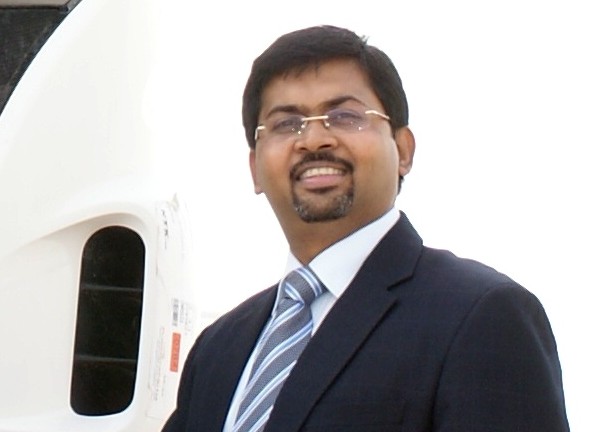
Prabissh Thomas is Managing Director of PTL SOLAR™, a provider of world-class energy efficient, renewable energy solutions in the Middle East and Africa. He has adopted several initiatives over the years to fulfill his company’s responsibility to society at educating students to use energy efficiently so as to conserve energy for future generations. Thomas believes that we should not link oil prices to the future development of alternative energy sources for four reasons.
By Jeanny Lim
Could you please update us on the global trends in renewable energy investment? What are the future prospects for investment?
It is the view of the UN Environment Programme and increasingly others that a Green Economy approach to these and other emerging challenges, such as energy security, resource efficiency and catalyzing an innovation-based economy, go hand in hand.
Several economies, from China, Japan and many European ones to the Republic of Korea and the United States, have earmarked multi-billion investments in clean energy, including smart grids, under the banner of a global “green new deal”
While the US$155 billion sustainable energy investment in 2008 and the multi-billion stimulus packages can go a long way, investment needs to reach a half trillion dollars per annum by 2020 to help ensure a peak in greenhouse gas emissions by then.
Investment in new energy generation projects (wind, solar, bio fuels, etc.) grew by 13% during 2008, to US$117 billion, and new private investment in companies developing and scaling-up new technologies, including energy efficiency, increased by 37% from 2007 to US$13.5 billion. At a macro level the sustainable energy sector was impacted by many factors in 2008, including politics and economics, the financial markets, and the wider energy market.
The drivers that have propelled investment in the sustainable energy sector so dramatically for the past five years are still at work--limate change, energy insecurity, fossil fuel depletion, new technologies, etc.
A more rapid transition to--and accelerated pace of investment in--sustainable energy is required so that CO2 peaks by 2020.
Government leadership provides the key to market success, according to the report. The 2004 market leaders in renewable energy were Brazil in bio fuels, China in solar hot water, Germany in solar electricity, and Spain in wind power.
Analysts predict that grid parity (the point at which conventional energy and solar energy prices will converge in developed countries) will take place between 2012 and 2015--by then, the market will change dynamically again. Solar energy will then be regarded as a mass commodity, as opposed to the new technology it is now.
What kind of correlation is there between the price of raw materials, oil and electricity and the renewable energy industry?
With nearly 10% of the total world supply of proven crude oil reserves and the world’s fifth largest natural gas reserves, the UAE is a critical partner and responsible supplier in global energy markets. While a mainstay to the economy, oil exports now account for only about 30% of total gross domestic product, as a result of aggressive government policies designed to diversify the UAE economy.
We believe that we should not link oil prices to the future development of alternative energy sources. Why? Four reasons:
First, we need to diversify energy sources. Many countries are importing energy, mostly oil. The U.S. and China are perfect examples of this. Europe, in the same sense imports large quantities of gas. In this respect, the energy security issue is massive and countries that are importing oil to generate energy need to decouple alternative energy from oil-related needs.
Second reason is the rising energy demands. Fossil fuel energies also cannot cover all these energy demand. The main reason is declining all reserves. We know that oil proven reserves will expire in around 50-60 years. It means that you need to replace oil-based energy sources with other alternative energy sources--and solar is the word in Middle East.
The third aspect is the climate change. In the last 50 years CO2 emissions have increased, raising global temperatures at a steady pace.
The last challenge, as I’ve said, is that resources are in decline. We have reliable statistics from the International Energy Agency to assume that oil will not last forever.
Despite the critical role of oil and gas for the UAE, the country has made groundbreaking commitments in alternative energy. The UAE is taking steps to reduce carbon emissions through major initiatives in both Dubai and Abu Dhabi.
Dubai is developing a master environmental plan that will ensure that growth and progress are achieved while protecting the environment. Demand-side-management of electricity will play a role, as will increased public transportation.
Jeanny Lim is Editor-in-Chief of InterPV. Send your comments to swied@infothe.com.
For more information, please send your e-mails to pved@infothe.com.
© www.interpv.net All rights reserved |



